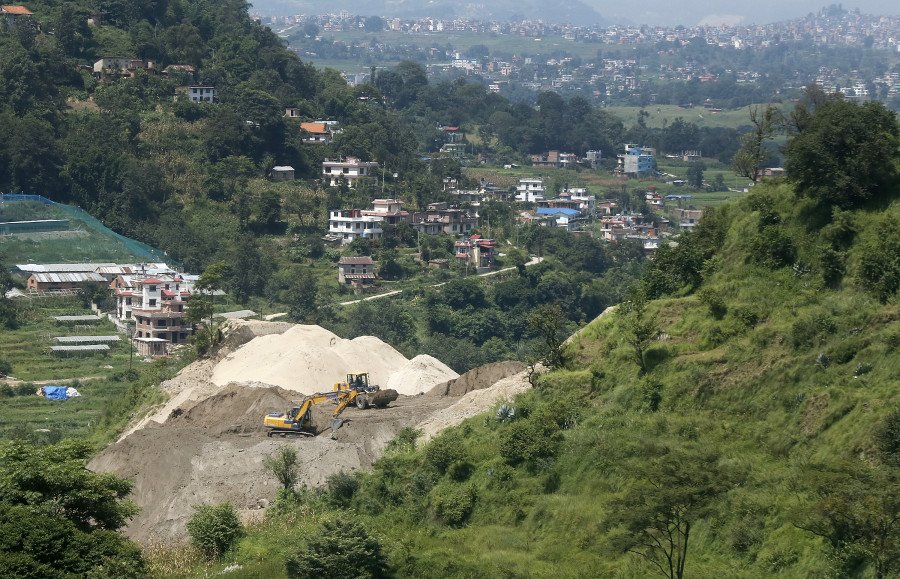Miscellaneous
Expressway to stay on course despite Khokana protests
Despite opposition from a section of locals from Khokana and Bungamati to the existing alignment of the Katmandu-Tarai Expressway, the government is unwilling to change the track as a majority of land required for the road has been acquired.
Binod Ghimire
Despite opposition from a section of locals from Khokana and Bungamati to the existing alignment of the Katmandu-Tarai Expressway, the government is unwilling to change the track as a majority of land required for the road has been acquired.
Senior ministers said the government was careful to minimise the damage to the area’s cultural and religious importance but was against the idea of changing the entire alignment. Responding to the concerns of lawmakers at the State Affairs and Good Governance Committee of Parliament on Thursday, Deputy Prime Minister and Defence Minister Ishwor Pokharel said since work for the expressway had already got under way it was not justifiable to realign the track.
Some of the residents of Khokana, a traditional Newar settlement in southern Lalitpur, charge the government with assaulting their religious heritage, livelihood and indigenous identity by acquiring the land for a number of development projects including the expressway.
The other projects concerning their locality are the Outer Ring Road Development Project, the Bagmati Corridor, a Satellite City, and a high-tension power line.
“We have to find alternatives for other projects. The entry point to the expressway, however, should be there as planned earlier, causing minimum harm to the area,” Pokharel told the House committee. Contrary to the claim of locals, a study by the Archaeology Department shows that there was nothing of archaeological importance, according to Pokharel. In its study, the department on October 8 said if anything of archaeological value is excavated during construction, it will be the responsibility of the constructor to preserve it.
The department’s report backs the government’s stance which is against changing the entry point of the expressway to Pharsidol from Khokana despite lobby from some lawmakers, locals, conservationists and cultural experts. Nepal Communist Party (NCP) lawmaker Pampha Bhusal, who was elected from the area, strongly advocates shifting the point to Pharsidol from Khokana.
Minister for Home Affairs Ram Bahadur Thapa said protests in Khokana were related to compensation for the land. “We have set a standard for providing compensation. If we increase the amount in the disputed area, that will impact the entire land acquisition process across the country,” he said, adding that the ministry was not in a position to increase the compensation amount at the moment.
Records at the Nepal Army, which has got charge of the construction, show that the project has acquired 96 percent land for the 76km facility that is expected to shorten travel time between Nijgadh in Bara and the Capital to an hour.
Major General Yogendra Khand, the project chief, said around 50 percent of the people from the Khokana and Bungamati areas have received compensation for their land. The pay amounted to Rs1.72 billion. The money yet to be paid amounts to Rs1.39 billion as the process has stalled due to opposition from the locals.
“The project shouldn’t be delayed on any pretext. I don’t buy the argument that all archaeological sites in Khokana will be destroyed if the entry point of the expressway is stationed there,” said Nepali Congress lawmaker Amaresh Kumar Singh, a member of the committee.
Khand said the project needs to acquire 912 ropanis of land in Lalitpur area which includes 693 ropanis owned by individuals, 137 ropanies and 82 ropanis owned by the government and Guthis, respectively.
So, far the compensation has been paid for 481 ropanis while 431 ropani is yet to come under the project due to non-cooperation from the locals.




 11.12°C Kathmandu
11.12°C Kathmandu










